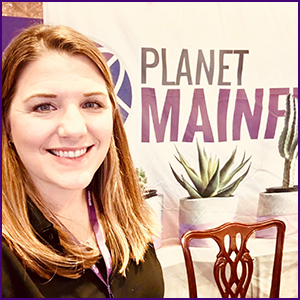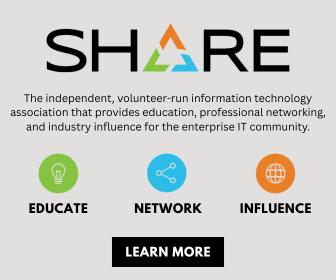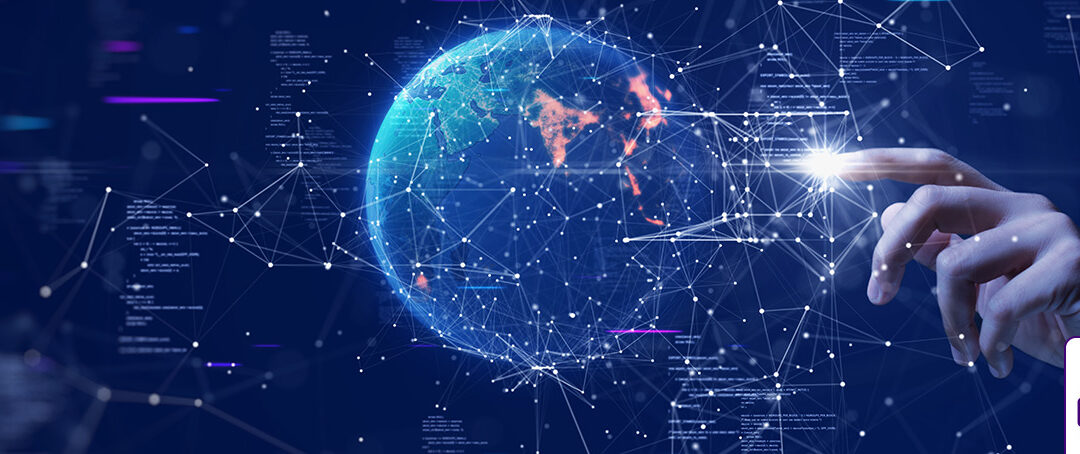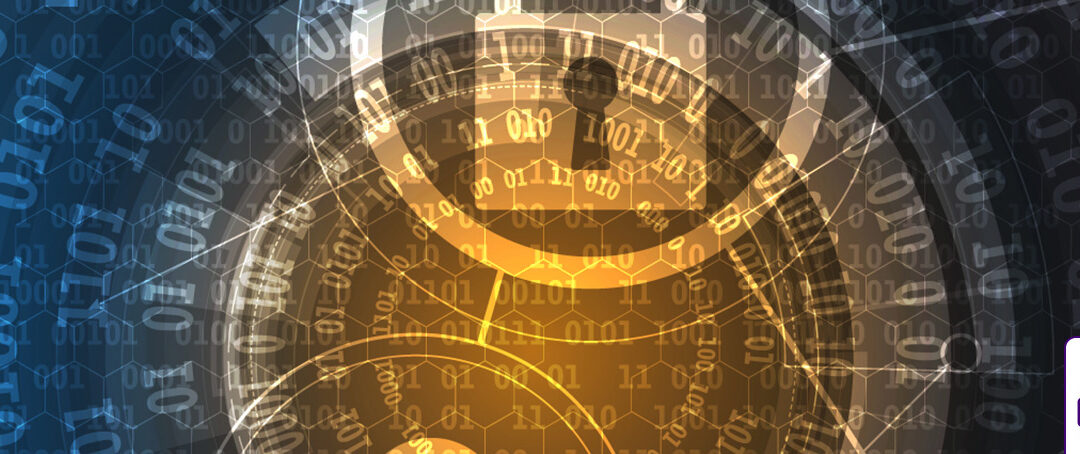In this episode of the Planet Mainframe podcast, Amanda Hendley talks with Chris Muncan, the chair of the 2024 IDUG North America Conference. Chris and Amanda discuss Db2 innovations, the conference, and the best ways to maintain and grow your skills.
Transcription
[00:00:00] – Introduction
Welcome to the Planet Mainframe Podcast, your gateway to the forefront of technology and the digital age. Join us as we dive deep into the heart of tech innovation, where industry experts and thought leaders gather to explore the ever evolving world of mainframes and beyond. In each episode, we’ll unravel the complexities of the digital realm, dissecting the technology that shapes our lives. From the giants of mainframe computing to the latest breakthroughs in AI, cybersecurity, and more. Here to guide you through it all, our mission is to bring you the brightest minds, the boldest ideas, and the most captivating stories from the dynamic world of tech. Whether you’re a tech veteran or simply tech curious, get ready to embark on this enriching journey with us. So fasten your seat-belts for a world of knowledge, innovation and inspiration. Welcome to the Planet Mainframe Podcast.
[00:00:52] – Amanda Hendley
Welcome everyone to today’s podcast. I am here with Chris Muncan, and if you haven’t met Chris, he’s a lead DB2 DBA at Sun Life, but you’ve probably met him because he is the 2024 IDUG North America Conference chair. Thank you for joining me today.
[00:01:08] – Chris Muncan
Thank you very much for having me. I appreciate it. Glad to spend some time with you today.
[00:01:12] – Amanda Hendley
Me too. I’m really enjoying the conference and I appreciate you giving me a couple of minutes. Today, I wanted to talk about you and your mainframe journey. Dive a little bit into DB2 and tooling.
[00:01:26] – Chris Muncan
Sure.
[00:01:27] – Amanda Hendley
And then we’ll see where the conversation takes us.
[00:01:30] – Chris Muncan
Looking forward to it. Awesome.
[00:01:31] – Amanda Hendley
Great. Well, can you tell me a little bit about your background and how you got into mainframe?
[00:01:36] – Chris Muncan
Sure. It was completely by accident. I always say it’s from the foot and mouth disease. I started off my first job right out of university. They asked me if I knew COBOL and I said no, but I really want to learn. And when they saw a 20 something year old kid fresh out of university, wanting to learn the mainframe, they brought me in right away. And from there, I mean, the rest is history. I just fell in love with the mainframe. To me it just makes sense. And that’s kind of where I started my career as a COBOL and DB2, CICS developer. And it’s kind of grew my career from there and honed to my craft. And again, I just love coding in COBOL and learning some more DB2 along the way. And really my career evolved. I’d say we were working on a project we were converting off of an IDMS over to DB2, and that’s where I found my passion for DB2. That’s where really DB2 took off for me. And I knew that this is where I really wanted to stay in this role and kind of expose DB2, the database and use it more and more and grow it as much as I could.
[00:02:36] – Amanda Hendley
What were you doing before they asked you if you wanted to learn COBOL?
[00:02:41] – Chris Muncan
Oh, my studies- I was doing software engineering. And so I was, I knew, actually, I can tell you, I was a little kid, I met, I was with my uncle, and the first time seeing a computer, I think I was about six years old, and I saw a computer. It’s the DOS prompt and I was in awe. And from there, I knew what I wanted to do. I knew I was going to be in IT. I knew I was going to be in tech. Like, when people ask me, what did you want to do? Most kids say, oh, a doctor or an astronaut. I knew I was going to be a geek. So that’s just where I felt the most comfort. And again, and it just flourished from there. So that’s why for me, it just felt like a lifelong passion, lifelong wanting to learn. So it was a natural fit for me. It was definitely not forced. It just, it’s comfort.
[00:03:28] – Amanda Hendley
Okay. And you got to do that project of moving things to DB2 and then just kind of, it sparked, oh, lifelong interest.
[00:03:35] – Chris Muncan
Yes, it did. It sparked a lifelong interest. Just seeing, you know, the inter-workings of how you can change one database technology into DB2, make it more logical, more relational, and it’s really working with the applications team. And at that time, I was a developer, too, so I wasn’t quite DBA. I was on the cusp of an application DBA. And that’s, again, what really positioned me and transitioned me into a DBA role because I was doing a lot of the DBA activities, but as a developer.
[00:04:01] – Amanda Hendley
Okay.
[00:04:01] – Chris Muncan
And then that’s when the company saw, hey, you know, do you want to pop into the DBA role? And I said, sure. And been doing it for about, I think it’s about ten years now we’ve been doing the DBA role. So it’s been a great experience, and I’ve never looked back since then.
[00:04:14] – Amanda Hendley
How long have you been at your current position?
[00:04:17] – Chris Muncan
Current position? I’ve been here for two and a half years, and prior to that, I was at my previous company for 15 years.
[00:04:22] – Amanda Hendley
Okay.
[00:04:23] – Chris Muncan
So it was long stint there and, you know, lots of learning in that timeframe and lots of career growth, lots of development, and I found a great fit at Sun Life here and it’s, you know, I’m so happy where I am and learned again, you know, where I was before, learned so much there, too. So gaining experience all along the way.
[00:04:40] – Amanda Hendley
Awesome. And I understand you’re passionate about tooling and I was curious to learn a little bit more about that and where you see some of those most significant advancements happening.
[00:04:53] – Chris Muncan
For sure. So tools are key nowadays. If you look at, you know, from what I’m seeing, I guess now I can consider myself more of an old school kind of DBA, although I don’t really feel like it at times, just given where I’m at with my comfort on the green screen. Right. So that’s why a lot of tooling, they’re taking off that layer of abstraction from the green screen and giving it to the newer, to the newer DBA’s are kind of, they don’t have that same experience on the green screen and on a terminal. They want to have more, you know, the visual, they want to see things that you can click on and have those alerts and those bright popping lights that you don’t really get on a terminal. So it’s really about that user experience and that you want that new UI that the new functionality that you get. Me personally, I’ve always loved, you know, the green screen and the going into the nitty gritty. But again, I definitely see the benefit of having those tools that you don’t need to know, know those specific fine tuning, that’s what the tool will help you for as well.
[00:05:49] – Chris Muncan
And those fine tuning, those, if you’re looking at, be it buffer pools or looking at your get pages or those sort of things, that really takes a lot of training, a lot of specialty. It takes a lot of time to gain that experience. And that’s what these tooling really shorten that window down. So I’m finding a lot of these new modern toolings from when I’ve tested them out, tried them out, I’m seeing that my time to resolution is quicker. I’m able to do problem determination faster as well. So be it. New graphs, new charts, new metrics, whatever it happens to be, I can look at those and get a quicker answer from a visual representation than from a textual based. And that’s what I think that these newer toolings, all across the board, is really giving you.
[00:06:28] – Amanda Hendley
It’s funny that you mentioned the love of the green screen, the prompt, because when you hear about that user experience modernization effort, it is about changing from that. But I hear so much love and… What’s the word I’m looking for? You know, there’s just a lot of…
[00:06:52] – Amanda Hendley
It’s a lot of passion as well for the green screen. We’re so attached to it. Like we are so attached to that green screen. I mean, I’m thinking back now, whenever I go to the bank, right? If you think, if you go into the bank, and I always, I love hearing my tellers saying, oh, I’m so sorry about this like really old system. I’m like, what are you talking about? We just updated that last week. So when you hear these sorts of things and you see these quote unquote old systems, you’re like, it’s the quickest input method ever to have that green screen just hands on keyboard. But again, if you look at airlines, banks, insurance, all the industries are all using these old terminals and they’re working really well. So now we’re looking at the newer tooling to help administer them better, help administer them for the new ages coming out.
[00:07:35] – Amanda Hendley
Exactly. How do you approach the tools that you need and evaluating new tools for your current role?
[00:07:42] – Chris Muncan
So evaluating tools, a lot of it has to do with coming to IDUG, coming to the conference, listening to webinars, listening to the experts, you know, the expert panels, the partner presentations, listening to all those and then seeing what is out there, what the trends and directions are, what are, you know, is it Broadcom, BMC, IBM, info, whatever the company happens to be, what products do they have, what’s available? What do you currently have? And kind of comparing and contrasting, and saying, okay, if you happen to be with one particular vendor, working with them and saying, okay, this is what I’d like to do, can you work with me to come up with a solution? But again, attending sessions, you get to see these tools hands on. If you do the workshops as well is one of the big things. I’ve always loved attending workshops because that’s where I always get hands on. You’re talking to the experts that have developed the tool, so you get to work with them and try to determine how best to use it in your shop.
[00:08:38] – Chris Muncan
Does this have quote unquote legs? Is it viable or what’s the right criteria? Is it going to reduce, is it your CPU reduction? Is it going to reduce your MIPS? Or what are you looking to do with that tool?
[00:08:50] – Amanda Hendley
I was talking to someone earlier today and they were talking about suite of tools, but we were talking about how it’s not a one size fits all. What’s going to work for one company and one project, it’s not going to work across the board. So it’s important, like you said, to go to these sessions. And I think what’s great about a conference like this is that feedback loop.
[00:09:13] – Chris Muncan
Yes. Oh, for sure. Yep. And again, the number of software consultants from all the companies that I’ve spoken to this week alone so far… work Tuesday afternoon. We’re not two full days in. And the contacts that you meet at IDUG, the people that you can associate with and help you with your current production problems, past issues, or you find like minded individuals here as well, that all working towards a common solution. We’re all looking to make DB2 better. We’re all trying to use DB2 as best as we can from all walks of life. So that’s why we’re all here, is to do that education and get more out of it.
[00:09:48] – Amanda Hendley
So what are some of the trends that you’re currently seeing in mainframe and DB2?
[00:09:53] – Chris Muncan
Oh, so trends. Good thing you mentioned that because as being the Conference Planning committee chair, we review hundreds and hundreds of sessions each year. I’ve been on the conference committee for five years now and I think I’ve reviewed close to 3,000 submissions. So again, each year you review the submissions and not just review, you get in depth in reviewing the articles, seeing what their abstract is, and then you get the final presentation as well, reviewing that. So you see a lot of trends over time as they go. You know, five years ago there was a lot of, there was a lot about Zowe- that’s when Zowe was really coming out. I remember actually here in Charlotte, five years ago, we had a separate Zowe track, which was really cool. So again, and that’s what Zowe was just coming out five years later. Now are when shops are starting to implement Zowe. So, yeah, it was, I want to say the hype, but it was the newest product in the market. It’s going to, you know, game changer. And it is, don’t get me wrong, but it takes time to adopt it as well. So that’s what I’m finding is that there’s all that hype at the beginning, but it stayed and now people are adopting it and it’s becoming the backbone.
[00:10:59] – Chris Muncan
So that’s what I’m really seeing. One critical one is Zowe. You know, we spoke about it years ago and now it’s like, oh, now that’s the backbone. If you need to get new tooling from IBM, from Broadcom, from BMC, they want you to have Zowe there as well, because they want that mediation layer so that they can have a common endpoint to connect to. So it’s really neat where you see that from five years ago to now, and that’s attending the conference. You see those slow pickups of that kind of technology. And the biggest change in technology that I’ve seen now, this year especially, is visualizing your metrics. So your statistics, your accounting. And again, all the vendors have come up with their tools with the same kind of Grafana displays. And it’s awesome. You see one come out and the next one, and the next one is like, okay, whichever vendor I’m with, whichever software solution I have, I have that same capability. And now you can visualize your metrics, you can visualize, you get your alerts and you can do all that sort of thing visually with the clicks of a mouse as opposed to hours on end trying to figure out your metrics. And are you okay with your averages? And you’re doing a lot of stuff there.
[00:12:04] – Amanda Hendley
Yeah, I was talking to someone too about observability because we just did a lot of sessions on the topic or a lot of content on the topic of observability, and we were talking about sorting through massive amounts of data, and what tools and resources there are to help make sense of, you know, every bit of data that you’ve got. And I’m, I am sure you all sorted through quite a few session submissions with AI integration.
[00:12:33] – Chris Muncan
Oh yes. And again, for AI we have a whole… So again, this year we’ve done all these themed days. So this year we have an entire day dedicated to AI, which is really cool. So again, you can sit down in four sessions, 4 hours long, and learn all about AI, like AI ML, generative AI. So it’s really neat what we’re trying to do here and kind of reorganizing the conference. So kind of bring those new things and those trends and directions, like you said, bring those to the forefront and just like how we have those themes now, so you can pick up on that particular theme, and sit in it, and kind of become a little bit more of an expert in it.
[00:13:09] – Amanda Hendley
Are there any topics or tools that you’ve picked up here that you think you’re definitely going to go back and say, hey, this is, guys, we need to do this.
[00:13:18] – Chris Muncan
I have so many notes written down. If I go through, I think I got about half of this notebook written down from this conference and past conferences this year. And there’s so many things, I mean, even just little tweaks to your system, you know, looking at if it happens to be your buffer pools, looking at, you know, your deadlocks looking at little tweaks that you can do without really affecting the application but really enhance your, your system itself and then also looking at additional tooling or, you know, the learning about additional capabilities of the tools you currently have. ISA is another big one too, because it’s one thing if you have Broadcom or you have IBM or BMC, you can pick up, if it’s let’s say detector, I’ll pick on that one right now. So with detector, you may know of a certain feature, you may not, but if you come here, you talk to the consultants, they can tell you, oh, you know, do you know about this feature or this feature or what about this recovery feature here? So it’s things that, you know, if you have that tool but you don’t know about the feature, well you can learn about it as well.
[00:14:20] – Chris Muncan
So, and I’ve learned about different things about recovery tools that we, that we have that we should start possibly exploiting more of. Right. So again, we’re fully recoverable, but you know, do we have, can we do more? Right. So that’s the thing to look at. It’s, yeah, like we have everything that we need in our shop, but can we be better? Can we go up and level up to the next level? And that’s what we’re trying to do with exploiting our current tool set as well.
[00:14:44] – Amanda Hendley
Well, and I think that is a way of innovating that maybe gets overlooked. Right. Some people look at innovation as it’s got to be implementing brand new technology into the fold. But how can you take what you’ve got and do things better?
[00:14:59] – Chris Muncan
Yes. Yep. And if you think of it, you’ve already paid for what you have. Why pay for something new that if your tool can already do it and you just need to learn it a bit better? So again, so it comes down to working with other, and again, working with other users at a conference they’ve experienced, we’ve experienced so many of these heartaches and pitfalls. So just talking with other individuals here, I mean we’re all like minded individuals. We’ll find others that have had the same problem or have the similar problem and we can reach out to our consultants and work with them to get a solution.
[00:15:30] – Amanda Hendley
Well, so you’re, I mean, obviously you’re active in the DB2 community or chairing the conference. How did you get involved in IDUG?
[00:15:38] – Chris Muncan
I got so seven years ago with my first IDUG I attended. It was IDUG Anaheim. My coworker, Brian Labe, he was presenting there as well and he attended many IDUGs in the past. And he said, you know, why don’t you come on out too? So I managed to get the funding and the approval to go out to IDUG. And again, when I first stepped foot and when we had the key note, I was just in awe. Like, I was like this was a whole other experience that I needed to have more of. And then again, sitting in sessions, I’m like, I thought I knew a fair bit at my place of at that point in time, I thought I knew enough about DB2 to kind of get by, but there was so much more to learn and it just really opened your, like, really opened your eyes and your mind as to, like, what is all out there. And then again, you just sitting down listening to other users speak as well, doing presentations. So my first IDUG, I sat in listening to other users came to my second IDUG where I actually presented.
[00:16:34] – Chris Muncan
So I went from being a first time attendee, to the second year being a first time presenter. Then by third year I was a presenter again and I joined the CPC. So the conference planning committee, because again, I wanted to share with whatever I received, I wanted to freely give back again. So, I mean, like everybody else here, all the other experts, they gave me so much information. I want to help. I want to help them out as well. I want to help out other attendees and other first time attendees get hooked, just like I was.
[00:17:00] – Amanda Hendley
I mean, I was going to ask you how IDUG has really changed over the years. I know there was this brief stint in your time at IDUG we might call Covid.
[00:17:13] – Chris Muncan
Where I lost so much hair and went a lot more gray.
[00:17:17] – Chris Muncan
Yes. So IDUG has changed. Covid definitely changed everything the way that we do conferences. I mean, we have the virtual aspect now. And when we went back in person, we’re still continuing on with that virtual and offering about 30% of the conference to virtual attendees. So you can be from anywhere in the world and still get that content live and on demand after the fact, too. Another big change is 09:00 a.m. start times. You may laugh, you may smile. That is the biggest benefit that IDUG has changed. The number of compliments that I’ve received for starting at 09:00 a.m. now. We used to always start at 08:00 a.m. and especially, and especially 08:00 a.m. seems okay, right? So I mean, a regular business day and eight, you know, eight to four, that’s okay. But you’re also going to bed at a regular hour. You don’t have these events, like the social events after hours, too. And it’s a long day of learning. When you’re sitting in sessions, six sessions a day, 6 hours of education learning, it’s a lot. It’s draining. So we were able to push the conference back to 09:00 a.m. and everybody got an hour of sleeping in, and we’re very appreciative of that.
[00:18:27] – Chris Muncan
That’s one big change. Another big thing, another big change is consistency. Hour long sessions across the board, starting at the same time every day. So that was, that was a big thing, too. You know, just get, getting that conference model set for attendees so that this way, they don’t have to think, oh, is it 03:00p.m. today for this session, or is it 03:10pm, or is it 03:15pm? You always, if it’s 03:00 p.m. Monday, it’s gonna be 03:00 p.m. on Wednesday. So, you know, it’s the same time across the board. So we’ve been trying for many years just to get that consistency done and set, and I think we’ve kind of nailed it right now. And also in working with both conferences, actually with conferences, especially our main flagships, EMEA and North America, and to have those two conferences run and feel the same, because we really want that. When you attend IDUG North America or IDUG EMEA, you’re attending an IDUG conference. So that’s why we want you, as an attendee, to really experience and feel you’re attending IDUG. It’s not that you’re attending a separate event and feels different than IDUG North America. We want to have the same for both.
[00:19:26] – Amanda Hendley
I mean, I appreciate the 09:00 a.m. start time, because what I see is after the sessions are done, is where you’re building your community in between the sessions, on the breaks and at meals, and then afterwards, an opportunity to connect. And that’s something you don’t get on virtual.
[00:19:46] – Chris Muncan
No, you do not. That is missed out on virtual. Even, yeah. That’s a piece that’s really missed out on virtual. That again, you get to listen in a session. Just like a webinar, you get to listen to a session. Don’t get me wrong, it is great for learning. You can always take that back and listen to it again. But you do miss that personal aspect of being able to reach out to somebody else or just comment to the person next to you and say, hey, do you have that as well? Or what about this setting here? So having that little just like being in the office as well, having that water cooler chat. You know that when we all start working from home, we really lost that water cooler chat. And just seeing how everybody’s doing. And that’s really what you get at the conference too. You get that personal aspect of the conference, and it’s like the number of friends that I have and really close friends over the years here that I’ve met, it’s an unbelievable experience. So it’s almost like cheers when you come back. Like everybody knows your name.
[00:20:37] – Amanda Hendley
That’s right. That’s right. I’ve got one last question for you, and I’ve talked a lot, I’ve talked to a lot of people lately about talent development in mainframe and how we’re getting more and more new people into the space. So I’m going to ask you, what advice do you have for someone that’s new to mainframe.
[00:21:01] – Amanda Hendley
Someone that’s new to mainframe- somebody that’s new to DB2 for sure. I can comment on that. So I know at IDUG the one plugin I’m going to put in is for our DB2 fundamentals. So IDUG does offer a DB2 fundamentals course which is fully customizable to the attendees. It’s intended to be a beginners or a beginner intermediate advance kind of for all walks. It’s really for the newer DBA that hasn’t really touched DB2 and you want to learn from the ground up. But now the group, I was talking to the instructor yesterday and he said that they’re doing it all advanced. So all the DBA’s that are in there, all the sysprogs, they’re more advanced and they want to learn the really advanced stuff. So, which I think is really cool. So whatever walk you’re from, if you’re from really beginner, to really advanced, that’s there, that runs in parallel with IDUG. And again, if you feel that you already have that knowledge there, you can either attend IDUG and they’re both running at the same cost as well. So they both run in parallel, and with the DB2 fundamentals, you also get the added bonus of sitting in the IDUG keynotes as well as some of the partner presentations.
[00:22:01] – Chris Muncan
So you get some of the additional benefit of IDUG too. But one of the big things for learning and continuing to learn, attend webinars, listen, want to learn, you know it. And tech is a lifelong learning. That’s what I have that ingrained in my mind. I knew, like I said from my, when I was a really young kid that I wanted to be in tech, and I learned very, very, very quickly that tech means you’re learning nonstop. If you stop learning, you’re going to be stale and you’re, your skills are no longer gonna grow. And I would say you have to really retrain yourself again. So I would suggest with how much DB2 has changed, the mainframe has changed. Keep with it. Work with mentors, work with peers, attend conferences, attend IDUG. One of the big things I would say, too, is if you are really new in the industry, find a mentor at your shop and get them take you under their wing, to show you the ropes, to show you how things are done, what the processes are as well. Because the main thing, it’s very logical. Like, even if you are on the green screen, right, everything is, it’s complex, but yet simple.
[00:23:09] – Chris Muncan
But it does take time to learn. And those people that have that experience, they’ve been at the companies for a long time. We have very experienced people that are at Sun and even at my old shop as well, people that have been there for decades, and they’re willing, they want to teach others as well. So this way they can retire. Because if they get that skill set out of their heads into newer, younger individuals and they’re at that age or past the age of retirement, well, hey, you know, the company will be okay. They can move on, move on to the next stage of life and then have the younger generation become the more advanced. So it’s learning from learning from experience. And for me, it was learning from doing, don’t be afraid to make mistakes. That’s why we have our development regions. That’s why we have our sandboxes. You know, that’s how I learn is just from hands on.
[00:23:59] – Amanda Hendley
Well, I think that’s great advice because if there’s anything, this is such a welcoming community. I don’t think that anyone can argue that coming to a conference like this and asking a question is not like the best place to be.
[00:24:14] – Chris Muncan
For sure. And I mean, one of the things that I love saying to people is I love hearing stupid questions because the people that are like, oh, I don’t want to ask. That’s a dumb question. But a dumb question means that you don’t know and you want to be certain they’ll answer it. It’s like, hey, that means you’re paying attention. That means you want to learn. Because, like, ignorance, like, the only way to solve ignorance, for me, is to ask. If I don’t know something, I’ll ask and find out. I’ll make a mistake, for sure. You know, I’m going to make mistakes along the way. It’s part of being human. Just you pick yourself up again, learn from your mistakes, and move on. And that’s why it’s all experience based. You’re learning from it. You learn from doing and learn from others as well.
[00:24:53] – Amanda Hendley
Absolutely. Well, Chris, thank you so much for giving me some time today.
[00:24:56] – Chris Muncan
Thank you so much. It’s been such a pleasure. I appreciate it. Thank you.
[00:25:00] – Outro
Thank you for tuning in to another enlightening episode of the Planet Mainframe Podcast. We hope you’ve gained valuable insights and discovered new horizons in the world of technology. This is the Planet Mainframe Podcast signing off. Stay curious.









0 Comments